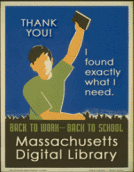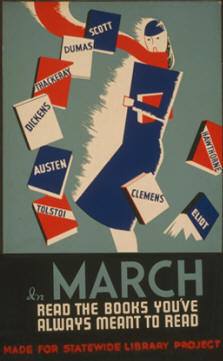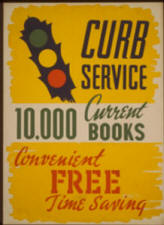View this message on the web: http://faculty.uml.edu/sgallagher/StateDigitalLibrary.htm

 In
his address to Congress, President Obama emphasized higher education
as essential to national recovery and future prosperity. He
pledged that "by 2020, America will once again have the highest
proportion of college graduates in the world." That ambitious
goal will remain elusive in Massachusetts now that the Governor has
proposed massive cuts to higher ed.
To deal with the shortfall, UMass has
approved steep fee increases that will make some students pay for
financial aid for others, a plan that shifts the burden onto
shoulders that are already sagging as jobs disappear, savings
dwindle, and home values sink. The word is that the stimulus
package might dull the cuts and offset fees, but we have yet to hear
specific ideas about how federal dollars should be spent.
Before individual schools start to clamor for funding for
campus-based projects, we should focus on initiatives that will
benefit all students at all institutions. Let’s seize this
moment to establish a central digital library that would
service libraries, schools, colleges, universities, and educational
organizations across the Commonwealth.
In
his address to Congress, President Obama emphasized higher education
as essential to national recovery and future prosperity. He
pledged that "by 2020, America will once again have the highest
proportion of college graduates in the world." That ambitious
goal will remain elusive in Massachusetts now that the Governor has
proposed massive cuts to higher ed.
To deal with the shortfall, UMass has
approved steep fee increases that will make some students pay for
financial aid for others, a plan that shifts the burden onto
shoulders that are already sagging as jobs disappear, savings
dwindle, and home values sink. The word is that the stimulus
package might dull the cuts and offset fees, but we have yet to hear
specific ideas about how federal dollars should be spent.
Before individual schools start to clamor for funding for
campus-based projects, we should focus on initiatives that will
benefit all students at all institutions. Let’s seize this
moment to establish a central digital library that would
service libraries, schools, colleges, universities, and educational
organizations across the Commonwealth. 
Massachusetts lags far behind most other states in producing digital resources for academic research and public education. But with minimal investment, we could implement a state-wide digital library modeled along the lines of the California Digital Library, a stand-alone institution housed within the President's Office of University of California that has remained a goldmine of educational enrichment even during times of severe budget crisis. We could adapt California's approach to conditions in Massachusetts by setting up a consortium that would run the digital library via a partnership between UMass and the Boston Public Library, thereby providing a much-needed boost to both of these vastly underfunded public institutions.
With a central library in place, UMass and the BPL could exchange educational resources with state and community colleges, as well as public and private schools and universities throughout Massachusetts. A digital library of curricular materials compiled by librarians, faculty, and staff from various institutions would not replace paper-based collections, nor would it obviate our ongoing need to provide public access to conventional books. However, it would save lots of students from having to shell out hundreds of dollars on textbooks that instructors would abandon if they had better alternatives, especially if those alternatives included documentary images, films, sound recordings, and other public domain materials that are easy to share over the Internet.
 A
state-wide digital library would not be another money pit.
Instead, its programs and exhibits could be used, not only to
support general education, but also to encourage cultural tourism by
showcasing our unique contributions to American literary and
cultural history. After all, whatever other states have to
offer, we have Emerson, Thoreau, Alcott, Hawthorne, Dickinson, Du
Bois, and other lights too numerous to name. And if promoting
public understanding of great writers seems too frivolous given our
present budget crunch—a dubious proposition—the counter argument is
that a digital library would allow libraries, schools, colleges, and
universities to exchange carefully selected educational resources on
virtually all subjects online, thereby saving enormous sums that
would otherwise be spent on paper-based texts.
A
state-wide digital library would not be another money pit.
Instead, its programs and exhibits could be used, not only to
support general education, but also to encourage cultural tourism by
showcasing our unique contributions to American literary and
cultural history. After all, whatever other states have to
offer, we have Emerson, Thoreau, Alcott, Hawthorne, Dickinson, Du
Bois, and other lights too numerous to name. And if promoting
public understanding of great writers seems too frivolous given our
present budget crunch—a dubious proposition—the counter argument is
that a digital library would allow libraries, schools, colleges, and
universities to exchange carefully selected educational resources on
virtually all subjects online, thereby saving enormous sums that
would otherwise be spent on paper-based texts.
President Obama and Governor Patrick have urged us to come together to find sensible and sustainable solutions to our economic woes. Creating a library that would reach into classrooms, homes, and businesses throughout Massachusetts clearly answers this call. Likewise, establishing a digital library that would be open to all is exactly the kind of public-spirited initiative we need to get beyond the greed that got us into this jam. We already know what happens when we shovel mountains of money at bankers. Let's see what happens when we give a fraction of that to librarians.
Sample page of multimedia curricular materials (rough draft)
Susan E. Gallagher, Associate Professor, Political Science Department, UMass Lowell (e-mail Susan) 3/9/2009